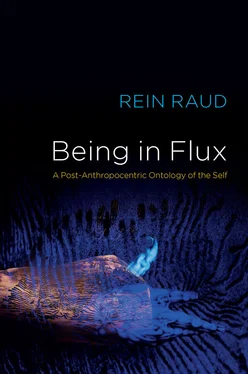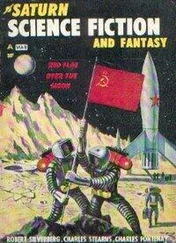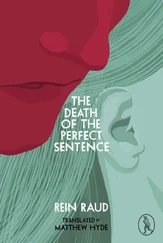159 154
160 155
161 156
162 157
163 158
164 159
165 160
166 161
167 162
168 163
169 164
170 165
171 166
172 167
173 168
174 169
175 170
176 171
177 172
178 173
179 174
180 175
181 176
182 177
183 178
184 179
185 180
186 181
187 182
188 183
189 184
190 185
191 186
192 187
193 188
194 189
195 190
196 191
197 192
198 193
199 194
200 195
201 196
202 197
203 198
204 199
205 200
206 201
207 202
208 203
209 204
210 205
211 206
212 207
213 208
214 209
215 210
216 211
217 212
218 213
219 214
220 215
221 216
222 217
223 218
224 219
225 220
226 221
227 222
228 223
229 224
230 225
231 226
232 227
233 228
234 229
235 230
236 231
237 232
238 233
239 234
240 235
241 236
242 237
243 238
244 239
Being in Flux
A Post-Anthropocentric Ontology of the Self
Rein Raud
polity
Copyright © Rein Raud 2021
The right of Rein Raud to be identified as Author of this Work has been asserted in accordance with the UK Copyright, Designs and Patents Act 1988.
First published in 2021 by Polity Press
Polity Press
65 Bridge Street
Cambridge CB2 1UR, UK
Polity Press
101 Station Landing
Suite 300
Medford, MA 02155, USA
All rights reserved. Except for the quotation of short passages for the purpose of criticism and review, no part of this publication may be reproduced, stored in a retrieval system or transmitted, in any form or by any means, electronic, mechanical, photocopying, recording or otherwise, without the prior permission of the publisher.
ISBN-13: 978-1-5095-4950-4
ISBN-13: 978-1-5095-4951-1 (pb)
A catalogue record for this book is available from the British Library.
Library of Congress Cataloging-in-Publication Data
Names: Raud, Rein, author.
Title: Being in flux : a post-anthropocentric ontology of the self / Rein Raud.
Description: Cambridge, UK ; Medford, MA : Polity Press, 2021. | Includes bibliographical references and index. | Summary: “A cutting-edge contribution to the philosophical debate about how to conceptualize reality”-- Provided by publisher.
Identifiers: LCCN 2021000209 (print) | LCCN 2021000210 (ebook) | ISBN 9781509549504 | ISBN 9781509549511 (pb) | ISBN 9781509549528 (epub) | ISBN 9781509549740 (pdf)
Subjects: LCSH: Ontology. | Self (Philosophy)
Classification: LCC BD331 .R26 2021 (print) | LCC BD331 (ebook) | DDC 111--dc23
LC record available at https://lccn.loc.gov/2021000209
LC ebook record available at https://lccn.loc.gov/2021000210
by Fakenham Prepress Solutions, Fakenham, Norfolk NR21 8NL
The publisher has used its best endeavours to ensure that the URLs for external websites referred to in this book are correct and active at the time of going to press. However, the publisher has no responsibility for the websites and can make no guarantee that a site will remain live or that the content is or will remain appropriate.
Every effort has been made to trace all copyright holders, but if any have been overlooked the publisher will be pleased to include any necessary credits in any subsequent reprint or edition.
For further information on Polity, visit our website: politybooks.com
This book started out as a few explanatory sentences at the beginning of an article, as it seemed necessary for me to clarify my ontological views. Sentences developed into paragraphs, then into passages and chapters. This is the result: the article remains to be written.
My sincere thanks go to Michael Krämer, Vanina Leschziner, Graham Parkes, Chiara Robbiano and Fernando Vidal, who read and commented on previous versions of the book or sections of it – the argument has benefited so much from your input! A deep bow is also due to the anonymous reviewer of the book for Polity, who found only praise for it, despite acknowledging that they disagree with me on all philosophical counts – I am very glad to know that such breadth of mind is still to be found in this world.
I am also truly grateful to John Thompson for hosting me as a visiting scholar in Cambridge in the spring of 2019, as quite a few among the central ideas of the book came to maturation during that period, and to everyone at Polity for their usual excellence and dedication in helping this book to see the light of day. Special thanks are due to Sarah Dancy for her sensitive and precise copy-editing.
This project was financed by the research grant PUT1365 of the Estonian Research Agency as well as the School of Humanities, Tallinn University.
My soul is a hidden orchestra. I know not what instruments, what fiddlestrings and harps, drums and tambours I sound and clash inside myself. All I hear is a symphony .
Fernando Pessoa, The Book of Disquiet (1991: 8)
Perhaps the most pressing task standing before the philosophy of our times is to articulate a worldview that would not have human beings at its centre, as the ongoing ecological catastrophe, on the one hand, and the emergence of artificial intelligence, on the other, are raising the need to rethink the role of humans in the bigger picture with increasing urgency. At the same time, ground-breaking discoveries in the natural sciences have shattered the very fundamentals of the way in which we think about being as such. It is therefore no wonder that ontological and epistemological debates have again acquired a resonance reaching a much broader audience than the circle of professional philosophers, and have started to engage intellectuals whose primary domain of work is something else, such as social theory, ecology, economy, or even health.
The need to rethink the basics of our ontology is also the primary motivation behind this book. Its aim is to provide a rational discursive framework for a post-anthropocentric 1view of human subjectivity, its ways of manifesting itself in sociocultural identities and ethical responsibilities – a view that would not postulate humans as discrete, strictly bounded individuals, whose perspective on reality would be established as the proverbial measure of all things. My goal is nonetheless to provide the prolegomena, so to speak, for a social philosophy first of all – a discourse and context in which we can discuss primarily human interaction, but without divorcing it from the broader environment, parts of which we are.
I have tried to pursue this goal by developing my theories of subjectivity and culture (Bauman and Raud 2015; Raud 2016), supplementing and contrasting them with ideas coming from various different schools and disciplines of thought.
In other words, this inquiry aims to present a systematic and thoroughgoing philosophical groundwork for the processual/relational turn in social science, advocated over the recent decades by many theorists (see, e.g., Abbott 2016; Crossley 2011; Dépelteau 2018; Dépelteau and Powell 2013; Donati 2010; Donati and Archer 2015; Emirbayer 1997; López and Scott 2000; Powell and Dépelteau 2013; White 2008). This turn has its roots in such discourses as Ernst Cassirer’s ‘relational concepts’ (1953: 309ff.), the theory of ‘trans-action’ formulated by John Dewey and Arthur Bentley (1949: 107ff.) as well as Karl Mannheim’s sociology of knowledge, and in particular his concept of ‘relationism’, which he opposes to relativism (1985: 239–44). Coupled with the embodied/enacted approach that has recently risen to prominence in cognitive sciences (see, e.g., Clark and Chalmers 1998; Fuchs 2018b; Gallagher 2017, 2020; Haugeland 1998; Johnson 2017; Thompson 2007; Varela et al. 1992), this view of social phenomena distances itself from the postulation of self-identical and continuous entities as the primary building blocks and participants of the dynamism of social reality. Together, these approaches have already made a significant contribution to how social processes and the individual person can be described and analysed.
Читать дальше












